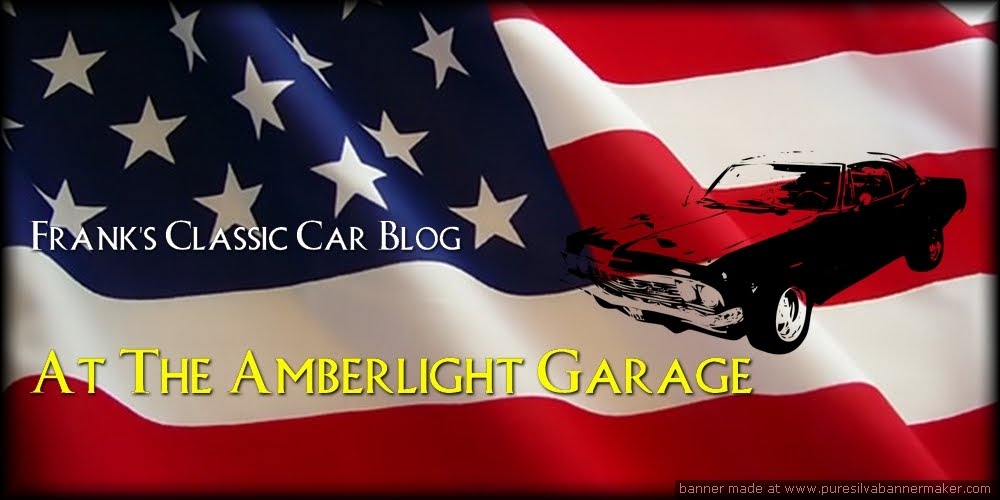The previous owner of the Merc warned me that the brakes were a bit "touchy". Gee, you think? I don't think touchy is the right word here, I'd say they are more like "grabby to the point of ripping the seat belt anchors out of the floor and projecting you through the front windshield." Yeah, that's it. He also opined that the proportioning valve was the source of the problem. Yes, I could agree with that synopsis if it weren't for one minor item: the Merc's braking system doesn't have a proportioning valve! It's not that the valve is missing or anything, it's just that four wheel drum brake systems didn't use them, especially with single reservoir master cylinders. My suspicions were with the front brake shoes. I had a feeling that the shoes were installed backwards, with the smaller primary shoe facing towards the rear. This would cause the front brakes to bind or lock up with just the slightest braking pressure. Theories and suspicions are great until you have to prove them, and now I have to perform some manual labor to prove mine.
 |
| Here is the Merc Cruiser in dry dock awaiting a retrofit. |
What I thought was going to be an easy job is turning out to be a major project. It seems as though I have opened Pandora's Box. Gee, what a suprise. I knew I was in for trouble when I discovered that the front brake drums are swedged or pressed onto the hubs, thereby making their easy removal impossible. It looks like I am forced to pull the entire hub and drum assembly in order to inspect the brake shoes. Things quickly went from bad to worse when I noticed the Merc still wearing it's original 48 year old FoMoCo drums.
 |
| Here is the front drum and hub assembly finally removed. |
No suprise here, all the brake hardware looked original and wasted. It appeared as though the only thing stopping this car was dumb luck. Just as I suspected, the primary shoe was installed backwards.
 |
| Your looking at the drivers side of the Merc Cruiser. |
 |
| Check out the grooves in this drum. This drum is junk and totally unsafe. |
This is a prime example of a "shade tree" mechanic brake job. It's pretty darn scary to see what some people will do just to save a few bucks. A visual inspection revealed that the only item replaced was the brake shoes, and they were installed backwards! Every other item was just plain wore out, from the bearings and leaking grease seal to the rusty return springs and hold down hardware. Even the teeth on the auto adjuster gear was wore out to the point that it no longer worked. What's even scarier is remembering how the big Merc got to the Amberlight, by driving it on the freeway at 65+ MPH!
So what's next for the Merc Cruiser? A total overhaul of the entire brake system is obviously required, along with converting it to a dual reservoir master cylinder. And this car is just screaming for a disc brake conversion, but that's easier said then done. Stay tuned as I weigh the cost of replacing all the parts on the drum brake system versus converting the Merc to disc brakes. I know it sounds like a no-brainer but when you don't have a mainstream car, parts can get kind of expensive, and I'm on a budget. Hey, give me a brake!
















